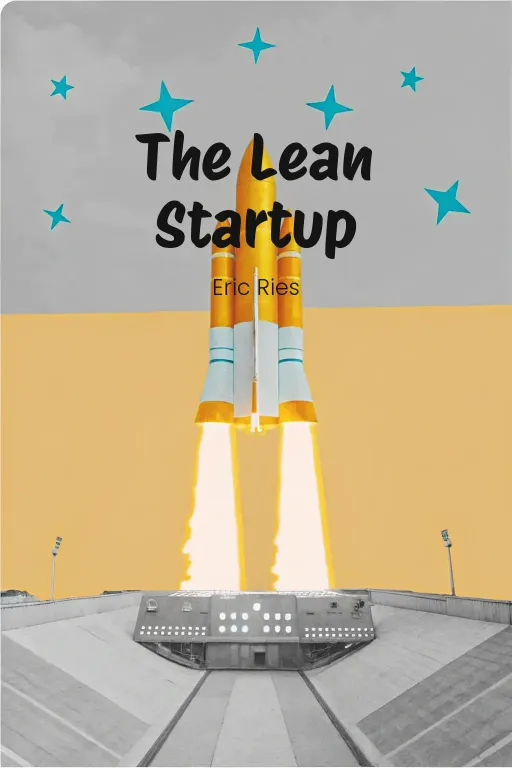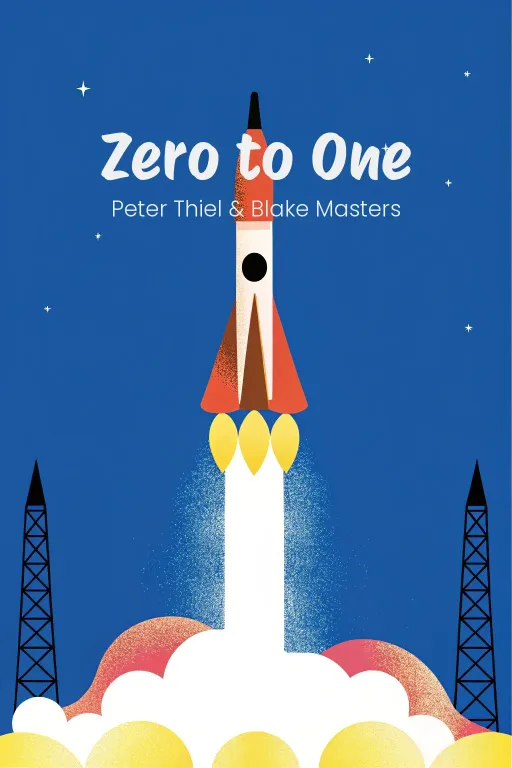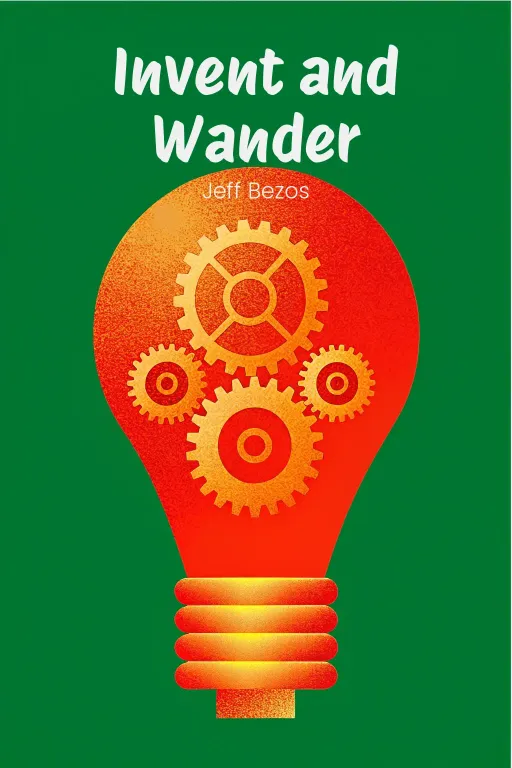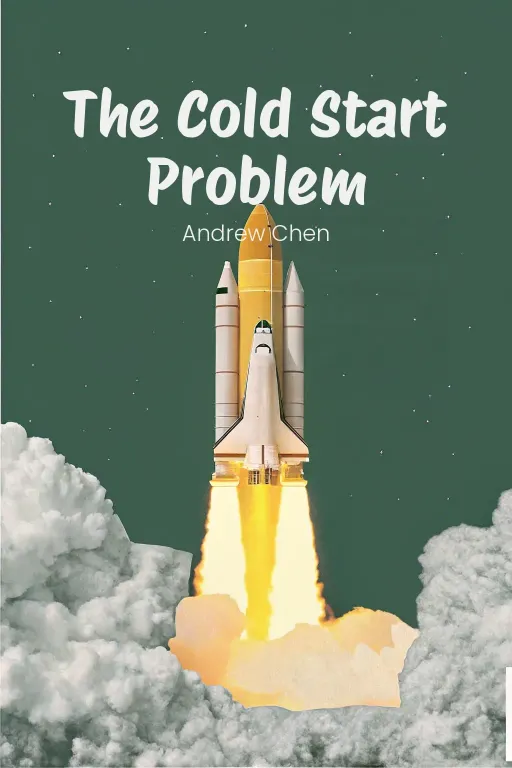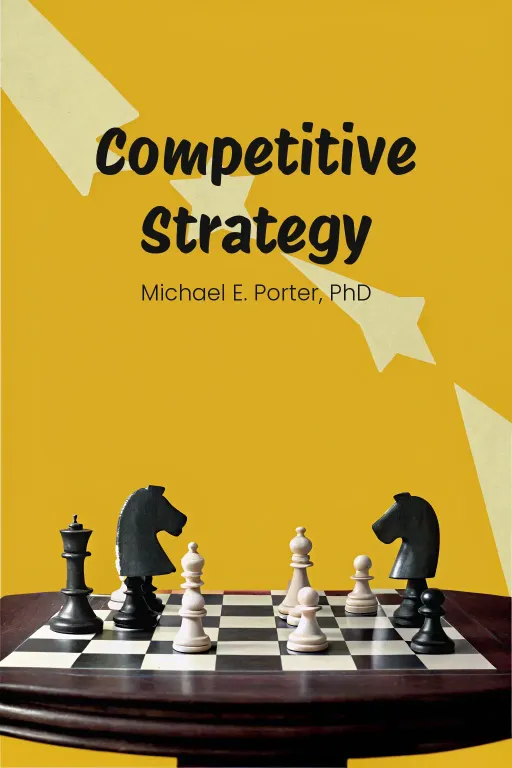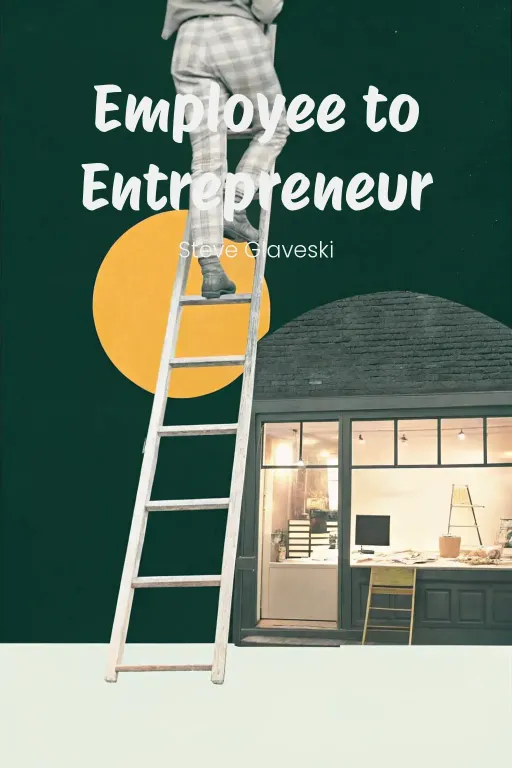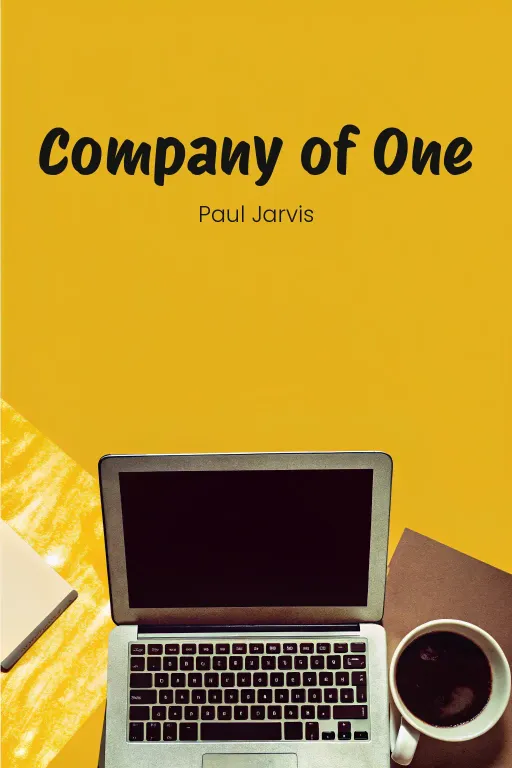
Screw It, Let's Build!
Podcast by Let's Talk Money with Sophia and Daniel
How I Survived, Had Fun, and Made a Fortune Doing Business My Way
Screw It, Let's Build!
Part 1
Daniel: Hey everyone, welcome back! Today, we’re diving into the world of Richard Branson, a truly daring and unconventional entrepreneur. If you have ever wondered how to build a global empire and navigate uncharted waters, both literally and figuratively, you're in for a fascinating journey. Sophia: Uncharted waters indeed! Daniel isn't exaggerating. Branson didn’t just build a business empire; he once tried to cross the Atlantic in a hot-air balloon! Apparently, starting an airline wasn't risky enough for him. Daniel: Exactly! That's what makes his story so compelling. His autobiography, “Losing My Virginity”, is an incredible account of how he transformed Virgin from a student magazine into a multi-billion-dollar group, spanning music, airlines, and even space travel. It's not just about business; it's about seizing opportunities, embracing risks, and integrating innovation into everything he does. Sophia: But let's be real, it's not all sunshine and rainbows, right? Branson’s life features some spectacular highs, but also some crash landings. Again, literally in some cases. Daniel: Right you are, Sophia. Today, we're going to break it all down, focusing on three key themes: his fearless entrepreneurial spirit, his groundbreaking innovation, and his commitment to causes beyond just making money. Sophia: This is going to be good. What exactly drives someone to revolutionize industries from music to space travel? Moreover, does "doing good" in business always translate to actually doing good? That's what I want to know. Daniel: Great question! We'll definitely get into that. We'll explore how Branson’s boldness fueled his success, how his creativity disrupted the status quo, and how his compassion brought meaning to his empire beyond mere profits. Sophia: So, buckle up, folks! Whether you dream of launching your own empire or are simply curious about what happens when you say, "Screw it, let's do it," this episode is for you.
Entrepreneurial Spirit and Risk-Taking
Part 2
Daniel: So, Sophia, let's jump right into Richard Branson's first big move: “Student” magazine. Can you imagine being a teenager and thinking, "I'm going to start a magazine to, like, tackle global issues"? Sophia: Seriously? Back then, I was way more interested in what was on TV than, say, dissecting the Vietnam War. But that's the thing about Branson, right? He wasn't your typical teen. He already had a knack for seeing opportunities and thinking big—big enough to try connecting with his entire generation in print. Daniel: Exactly! It “really” shows you his mindset. He wasn't just making noise; he wanted to create a platform for young people to voice their opinions during a “really” turbulent time. And considering advertisers were hesitant at first—can you imagine how many doors were slammed in his face? Sophia: Oh, I'm sure. Pitching a youth magazine with an unconventional angle in the late '60s in Britain? That probably wasn't an easy sell. I mean, most advertisers were probably still focused on tweed jackets and tea cozies, right? Daniel: But he kept going! Branson knew his audience had untapped potential, and he was determined to make it work. He even managed to interview people like Mick Jagger. That's more than just hustle; it's a “real” instinct for breaking down barriers. Sophia: And probably a healthy dose of audacity, right? That willingness to hear "no" a hundred times and keep pushing forward—that set the stage for everything that followed. “Student” taught him about negotiation and resilience, sure, but more importantly, it taught him to trust his gut, even when nobody else seemed to believe in him. Daniel: Right. And those lessons became super valuable later on. Like after “Student”, he went into music with Virgin Mail Order Records. I love this part of the story. It's a perfect example of turning a need into a huge opportunity. Sophia: Yeah, you know what they say, "necessity is the mother of invention." Branson needed funds for “Student”, so why not sell discounted records by mail? Simple, right? But what's interesting is how quickly he focused on making things easier for the customer. Lower prices, ads in the magazine people already trusted—it seems obvious now, but back then, it was kind of genius. Daniel: It “really” was. And I think he was incredibly resourceful. Think about it: the upfront payments for records gave him cash flow when he “really” needed it. That's pragmatic risk-taking. He minimized the financial strain while “really” maximizing the impact. Sophia: "Pragmatic risk-taking," that sums up Branson pretty well, doesn't it? This wasn't just blindly jumping off a cliff and hoping for the best. He knew his market because he “was” his market. He wasn't some corporate guy in a suit; he understood what people wanted because he wanted it too. Daniel: Exactly. And that ability to understand what people wanted is part of what turned Virgin Mail Order into Virgin Records—and then into one of the most exciting record labels out there. Signings like Mike Oldfield and “Tubular Bells” were a “real” gamble, but Branson believed in their potential, even when everyone thought it wouldn't work. Sophia: Hold on a second. So, this young guy starts a brand-new record label, and his first major release is an “instrumental” album with this haunting tubular bell theme? I mean, radio DJs must have been scratching their heads. Is that a classic example of biting off more than you can chew? Daniel: It could have been, yeah. But Branson didn't see it that way. He saw talent that wasn't being recognized, and again, he hustled to make it work. He reused a contract template to sign Oldfield and then relentlessly promoted the album until someone noticed. John Peel's interest “really” changed everything. Sophia: Talk about a calculated risk. And let’s not forget the ingenuity here—this wasn't just luck. From leveraging the magazine's audience to creating experiences in his record store to have a personal touch, everything connected. Branson was building "customer-centric" branding long before it was a business buzzword. Daniel: Precisely, Sophia. He was disrupting industries by mixing bold new ideas with practical application. And there's a bigger lesson there: you don't need to have everything figured out as long as you're willing to adapt and learn. He was never afraid to change course, whether it was from a magazine to records or from selling vinyl to signing artists. Sophia: Okay, but here’s a question. We romanticize risk-taking like this, but is it always as glamorous as it seems? I mean, Virgin was probably one bad week away from going under more times than we know. Was the risk “really” worth it, or was some of it just plain crazy? Daniel: That’s a fair question. But I'd argue that without that near-reckless optimism—though carefully planned, of course—he wouldn't have been able to build what he did. Every risk seemed to teach him something essential, preparing him for later on. Like he said, "You don’t learn to walk by following rules. You learn by doing and falling over." Sophia: True, but falling over hurts. And it’s impressive how Branson managed to always fall forward. Whether you call it resilience, instinct, or just plain stubbornness, that's what makes his entrepreneurial spirit so unique. Daniel: And that resilience is what propelled him into completely new industries—but we'll get to that in a bit. For now, his early ventures “really” show how carefully planned risks, combined with creativity and perseverance, can completely change the game. Sophia: Let's be honest, Daniel: whether we agree with his methods or not, Branson definitely turned every hurdle into a springboard. And I bet our listeners are eager to know what's next in the Virgin story.
Innovation and Diversification
Part 3
Daniel: That fearless attitude not only built his empire but also spurred groundbreaking ventures in aviation, space, you name it. And this leads to a truly exciting part of Branson’s story: his knack for expanding Virgin into uncharted territory and completely overhauling industries. Sophia: "Uncharted territories," eh? Suddenly I'm hearing jet engines and rocket boosters! Seriously, Daniel, this is what sets him apart. It's more than just a willingness to take risks, it’s how he injects fresh energy into industries that have grown stale. I mean, really, who decides that after music, their next big thing is...aviation? Daniel: Exactly! And that's precisely what we're looking at—how Branson innovated and diversified Virgin way beyond its original scope. Whether it was shaking up the music industry with Virgin Records, redefining air travel with Virgin Atlantic, reaching for the stars with Virgin Galactic, or revolutionizing retail with Virgin Megastores, each step was a mix of creativity, customer focus, and an outsider's perspective. Let's kick things off with Virgin Atlantic, since that story is just so iconic. Sophia: Absolutely. Alright, Daniel, set the scene for us. How does a record label mogul suddenly decide, "You know what? I'm gonna take on British Airways"? Daniel: It all started with Branson's own travel frustrations. He personally experienced the inefficiencies and, frankly, unpleasantness of air travel in the 80s. Airlines were mostly focused on profits, offering minimal service, especially in economy. So, Branson, true to form, spotted an opportunity. He wanted to create an airline that combined comfort, fun, and prioritized the customer—something that just wasn’t there at the time. Sophia: And that's where his outsider perspective comes in, right? He wasn’t from the aviation world, so he wasn’t bound by their traditions. It’s like he looked at the whole thing and just thought, "Let's just...make this better." Daniel: Precisely! When Virgin Atlantic launched in '84, it wasn’t just another airline—it was a complete reimagining of air travel. They emphasized dual-class cabins, offering both affordable economy options and luxurious business-class amenities. They focused on entertainment and comfort, with onboard bars, stylish cabin interiors, and a service style that was attentive but also relaxed. Virgin wanted to make flying an experience, not a chore. Sophia: And, of course, the marketing helped, right? I remember their slogan: “Virgin Atlantic—More Experience Than Our Name Suggests.” That definitely got people talking. Daniel: It did, absolutely, and Branson knew how to work the media. But marketing aside, it was the actual service that allowed Virgin Atlantic to carve out a niche, even with the odds against them. They were going up against industry giants like British Airways, who not only dominated the market but held considerable political and economic clout. Sophia: Yeah, let's talk about that rivalry. British Airways wasn’t exactly thrilled with this upstart shaking things up. And they played dirty, didn't they? Daniel: Definitely. British Airways engaged in what we'd call some pretty nasty tactics—smearing Virgin Atlantic's reputation, poaching customers, even trying to bribe travel agents to send business elsewhere. It was a full-blown smear campaign. But Branson wasn't one to back down. He sued British Airways for libel—and he won. Sophia: And then, in classic Branson style, he turned that victory into a morale boost by giving the settlement money to his staff as bonuses. I've gotta say, Daniel, as much as I sometimes question Branson's methods, that was brilliant leadership. It sent a clear message: "We're all in this together." Daniel: Exactly, and that was a defining moment. It solidified Virgin Atlantic’s identity as the underdog who would not only survive but thrive against adversity. And it shows how all of this is tied to Branson's overall approach: not just competing, but actively questioning norms, and providing something better. Sophia: But here’s something I wonder about. At what point does taking on giants like British Airways stop being admirable and start becoming…reckless? I mean, we're talking about an airline! A single mistake doesn’t just impact profits; it could shut down the entire operation. Daniel: A fair question, Sophia, but I'd argue that Branson wasn't just reckless. He did his homework, assembled a strong team, and used his marketing skills to carve out Virgin Atlantic’s niche. Sure, there was risk involved, but it was calculated risk—driven by an obsession with improving the customer experience. Sophia: Fair enough, and he did have the guts and the vision to back up those risks. Now, speaking of guts and vision, let’s go bigger—beyond the skies, into space. Virgin Galactic is one of the wildest chapters in the Virgin story, no question. Space tourism, Daniel? Seriously, what was he thinking? Daniel: It's both audacious and very typical of Branson, isn’t it? Virgin Galactic takes his "pushing boundaries" thing to a whole other level—literally. The idea was simple: make space travel accessible to civilians rather than just governments and billionaires. It's space tourism, yes, but with a broader mission of advancing technology and environmental innovation. Sophia: And doing it through SpaceShipTwo? The design is pretty incredible. Instead of a classic rocket launch, they use this “piggyback” system—launching the spacecraft from a jet-powered mothership. Clever engineering, and totally Branson: making the impossible seem relatable and cool. Daniel: Exactly. It's a possible breakthrough in both cost and environmental impact too. Traditional rockets are expensive and, let’s say, not exactly eco-friendly. But Virgin Galactic emphasizes sustainability. Even their choice of renewable fuel sources—rubber and laughing gas, of all things—shows that commitment to innovation with a conscience. Sophia: And that’s the thing, Ange: Branson often blends profit with purpose. With Virgin Galactic, it wasn’t just joyrides to the edge of space. He talked about the potential to use space exploration to gather climate data, track deforestation, monitor ice-cap shrinkage... It’s almost like saying, "Come for the adventure, but stay for the impact." Daniel: And That's what sets Virgin apart in every venture, right? Whether it’s music, airlines, or space—we always come back to adventure, customer focus, and a greater purpose. Branson’s ventures aren’t just businesses; they’re experience-driven movements. Sophia: They are. I’ll still always wonder how many sleepless nights Branson had pulling it all off. The sheer scope of it—music, travel, space. He never seems content with one success. Between you and me, Daniel, do you think that constant push to diversify could ever backfire? Daniel: It definitely could have, and sometimes came close. But what makes Branson fascinating is his ability to juggle that diversification without ever losing sight of Virgin’s core values. Whether it’s a record label or a space program, he fosters innovation while staying focused on creating value for the customer. That's a rare combination. Sophia: It sure is. And when you think about it, each of these leaps—from Virgin Records to Virgin Atlantic, or Virgin Megastores to Virgin Galactic—set the stage for Virgin's next bold move. If nothing else, Branson's shown us that limits are really just challenges waiting to be redefined.
Social Responsibility and Legacy
Part 4
Daniel: So, this drive for innovation didn't just stay in business, it spilled over into his charity work and environmental projects. Which leads us to social responsibility and legacy. It's really interesting to see how Branson’s journey as a businessman eventually lined up with this goal of making a real, lasting difference in the world. Sophia: Exactly, because as much as we've talked about the daring ventures and sky-high risks, there's this other aspect to Branson. This side that's thinking about climate change, healthcare, and inequality. Maybe that daredevil started thinking, "Okay, what can I give back?" Daniel: Precisely. And his approach to social responsibility is classic Branson. Instead of keeping it separate from his companies, he wove philanthropy right into the Virgin Group itself. Virgin Unite, which he launched in 2004, is a perfect example. Sophia: Okay, Virgin Unite – let's dig into that. Is this just a pet project, or does it actually have some power? Daniel: Oh, it definitely has power. Virgin Unite is essentially the heart of Virgin's commitment to global social and environmental causes. Its mission? To “really” tackle the big issues, like climate change, healthcare disparities, and social inequality. And all while using Virgin’s resources and connections. Sophia: Got it. So, he's not just writing a check and calling it a day. Virgin Unite is about actively using the brand to make a real difference. Daniel: Exactly. One of Virgin Unite's most impactful moments was when Branson visited South Africa during the height of the HIV/AIDS epidemic. He saw firsthand the crisis in hospitals, patients in hallways doubling as triage centers, and, heartbreakingly, just covered in funeral home ads. For Branson, it was a real wake-up call. It was time for action. Sophia: Wow, hold on. That’s intense. You've got this billionaire, famous for balloon stunts and record labels, walking into that kind of devastation. How do you even begin to shift from, "Let's launch a new airline," to, "Let's fight this epidemic"? Daniel: It's a huge shift, but that's Branson. He spots an issue, even outside his comfort zone, and gets the right people to help solve it. Virgin Unite didn’t just focus on giving treatment. They “really” emphasized education and prevention, tackling the root of the problem. And in a “really” creative move, they got Virgin employees and partners worldwide involved, showing how businesses can drive social change. Sophia: That's pretty innovative, actually. Branson basically said, “Let’s not separate corporate efforts from societal impact. Let’s use the skills we already have to find solutions.” Daniel: Exactly. And that same approach carried over to his environmental work, leading to huge projects like the Virgin Earth Challenge. Sophia: I love that one—the $25 million bet on saving the planet. Totally Branson: bold, attention-grabbing, impossible to ignore. But what was the actual plan? Daniel: The Virgin Earth Challenge was all about incentivizing innovation. The idea was simple: find real solutions to remove carbon dioxide from the atmosphere. Branson realized that businesses, while part of the climate problem, also had the resources to be part of the solution. It wasn’t just about giving out money. It was about sparking a global conversation and inspiring new technologies. Sophia: And he got some serious names involved, right? Al Gore comes to mind. It wasn't just some techies in their garages, it was a coordinated effort with scientists, engineers, and business leaders. Daniel: Absolutely. Partnering with people like Gore gave the initiative credibility and highlighted the urgency of the climate crisis. And even though the prize didn't result in one ultimate solution, it was still incredibly successful at driving innovation across different fields. Sophia: So, you're saying it's less about handing someone $25 million and more about creating momentum. About starting a dialogue and pushing people to “really” think outside the box. Daniel: Exactly. And the best part is the bigger message it sent: that businesses and individuals have both the power and the responsibility to step up. It’s this duty that Branson keeps talking about. Sophia: Which connects with his conservation efforts, right? He seems to focus on sustainability in a lot of his later projects. Like the Peace Parks initiative—undoing ecological fragmentation across borders. That's combining charity and logistics in a way that’s… well, ambitious, to say the least. Daniel: It is, but that ambition was necessary. Branson worked with groups like the Peace Parks Foundation to break down artificial barriers that were disrupting ecosystems. For example, in South Africa and Mozambique, removing fences literally reshaped habitats, allowing elephants and other animals to flourish again. Sophia: Right, but what I find interesting is how he linked conservation to economic development. By encouraging eco-tourism, local communities didn't just live alongside these conservation efforts, they actually benefited from them. If people get something tangible out of protecting the environment, the incentive becomes personal, not just altruistic. Daniel: Exactly. It reflects Branson’s belief that doing good doesn’t have to sacrifice financial success. His whole idea is about finding where progress, business, and responsibility all come together. Sophia: But let me ask you: Do you think Branson’s personal brand—this whole "adventurer with a heart of gold" image—helps these efforts, or does it sometimes overshadow them? Daniel: That's a great question. I think Branson’s persona definitely brings attention to his causes, which is a positive thing. However, what “really” makes these efforts valid isn’t just Branson’s name, but the real impact they have. Virgin Unite’s work, the innovations from the Virgin Earth Challenge—those speak for themselves. Sophia: I'll give you that. It’s rare to see someone who doesn't just talk about making a difference but actually builds lasting systems for change. Like his role with The Elders, partnering with people like Mandela and Tutu to address peace and human rights issues. This wasn’t just a PR stunt, it was real action on a global level. Daniel: Exactly. And it “really” sums up his legacy: the idea that businesses, when run with purpose, can solve problems far beyond just making money. Whether it's fighting HIV/AIDS, restoring ecosystems, or creating structural solutions to social problems, Branson’s later work redefines what it means to be an entrepreneur. Sophia: So, to wrap things up, Daniel, here's my final thought: Branson's story is about audacity, sure, but also responsibility. He built a brand that didn't just sell things, but tried, in its own quirky, audacious way, to leave the world in a slightly better state. Daniel: Couldn’t agree more, Sophia. Branson proves that innovation isn’t just for businesses – it’s for everyone. When we think big and act with purpose, even the toughest problems can inspire meaningful change.
Conclusion
Part 5
Daniel: So, Sophia, today we dove into the life of Richard Branson. His story is really about daring risks, constant innovation, and a real focus on making businesses a force for good, right? From starting Student magazine – pretty rebellious, huh? – to shaking up industries like music, air travel, and even space, his journey shows the power of vision, creativity, and just plain sticking with it. Sophia: Absolutely. And, you know, let's not forget this delicate balance of chaos and strategy he clearly mastered. Turning setbacks into opportunities, taking on giants like British Airways... Branson really proved that smart risk-taking and resilience are key to success. But it wasn't just about the money, was it? He always tied his businesses to a bigger purpose. Daniel: Exactly! His story really makes you rethink entrepreneurship. It’s not just chasing the dollars, but about building something meaningful and lasting. Branson’s legacy shows that even if your path is a bit out there, combining bold ideas with a clear purpose can lead to incredible results. Sophia: Right, and that's the real takeaway, isn't it? Whether we're talking about a side project, trying to innovate at work, or even just tackling everyday problems, Branson's "screw it, let's do it" attitude reminds us to just take the plunge, learn from our mistakes, and keep pushing the envelope. Daniel: Exactly that, Sophia. So, as we finish up today, ask yourself: What barriers can you challenge? What calculated risks can you take? And how can you really connect your ambitions to something bigger? Maybe the first step is just saying, like Branson, "Screw it—let’s do it."
